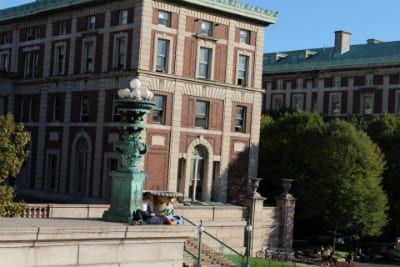GRADUATE PROGRAM
FREQUENTLY ASKED QUESTIONS
Is there any funding for students in the free-standing M.A. program?
Unfortunately, the Graduate School of Arts and Sciences does not provide fellowships for students in free-standing M.A. programs. American citizens are eligible to apply for Foreign Language and Area Studies Fellowships (FLAS), a competitive award that is occasionally offered to M.A. students who demonstrate exceptional promise. For more information, see GSAS Financial Aid. Please note that FLAS deadlines are often considerably earlier than the deadline for applying to the free-standing M.A. program. Within MESAAS, research positions may be available to students eligible for the Federal Work-Study Program. Students with strong ability in select MESAAS languages may be considered for a gradership position. Please contact the relevant language coordinator for details.
What financial aid do you offer for PhD students?
See the description of the Ph.D. program, the Fellowships and Travel Awards for current students, and the GSAS Office of Financial Aid fellowship information.
I have an offer from another M.A. or another Ph.D. program. How soon will I hear from Columbia?
Applicants to the free-standing M.A. program who receive an offer from another university should contact the Director of Academic Administration and Finance in MESAAS to enquire about the possibility of an early admissions decision. Offers of admission to the Ph.D. program are made around the same time as offers from peer institutions. Ph.D. applicants with offers from other institutions are welcome to contact the Director of Graduate Studies to inquire about the status of their application.
Are there required courses?
How do I apply for transfer credit?
If you have received a Master’s degree or completed graduate courses elsewhere, you may apply for transfer credit after entering the program. The GSAS rules can be found here. The department regularly awards transfer credit or advanced standing for courses equivalent to the course work for the MESAAS M.A.. However, students admitted to the Ph.D. program with a Master’s degree from another institution sometimes decide not to request advanced standing, in order to take full advantage of the opportunities to take seminars with Columbia faculty.
My native language is not English, but I studied at an English-language university. Do I need to submit TOEFL scores?
The Graduate School requires those whose native language is not English and who have received an undergraduate degree from an institution in a country whose official language is not English to submit scores of the Test of English as a Foreign Language (TOEFL). See information for International Students.
What level of proficiency in MESAAS languages is required for entry?
Doctoral applicants must have at least two years of formal language training (or the equivalent) in their main research language at the time of entry into the program. The appropriate level for admission to the program will vary with the course of study and program of research you plan to follow, and can be discussed in advance with the faculty with whom you expect to study. Applicants for the free-standing M.A. can be without formal language training but more is of course beneficial.
Do you require a writing sample?
Yes, a writing sample of 15-20 pages is required. Please do not exceed the page limit.
Do you require the GRE (Graduate Record Exam) scores? If so, is there a minimum score?
MESAAS is not requiring the GRE of applicants for Fall 2024.
What is the Application Deadline?
For the deadlines for the Ph.D. and free-standing M.A. programs, see the GSAS page here. Applications to the free-standing M.A. are reviewed on a rolling basis, so those who apply before the deadline may be able to receive an early decision.
Should I apply to MESAAS? How can I tell whether my interests are appropriate for the department?
In considering your application, we look at how closely your research interests fit with the teaching and research interests of our faculty. For applicants to the Ph.D. program, the best guide is to read some of the recent work of the MESAAS faculty (follow links to profile pages) in your areas of interest and consider whether the kinds of questions they ask and methods of answering them fit with your own intellectual concerns. Although most Ph.D. students focus their studies on one geographical or intellectual area, and work primarily with specialists in that area, we encourage you also to consider the research of members of the department who work in other areas but whose approach and methods may be of interest. For applicants to the free-standing M.A. program, in which students often study with a broad range of faculty, the general areas of faculty teaching and research provide a useful guide to what we do.


